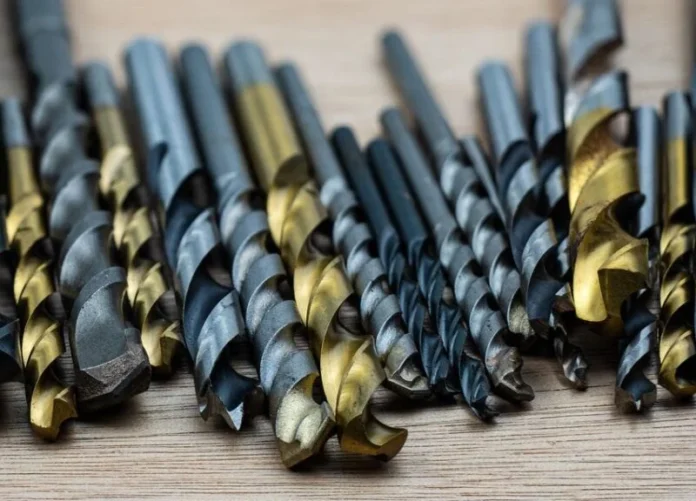Choosing the right drill bit for metalwork can be a game-changer in both productivity and result quality. In my 15 years leading teams through complex engineering projects across the UK, the drill bit you select often makes the difference between a job swiftly done or costly delays. Back in 2018, many stuck with general-purpose bits, not realizing the leaps in metallurgy and design we’ve seen since. These advances have allowed specialist bits to handle tougher alloys and thicker metals without overheating or dulling prematurely. Here’s what to consider when picking the best drill bit for metal to maximise your efficiency and the lifespan of your tools.
Best Cobalt Drill Bits – Reliability When It Counts
From a practical standpoint, cobalt drill bits stand out as a premier choice for metal drilling. I recall working with a client whose operations involved stainless steel fabrication; switching to M35 cobalt bits cut their drilling times almost by half. The cobalt alloy—typically 5% added—greatly improves heat resistance. This means you can drill through hard metals like stainless steel and high-strength alloys without frequent bit changes or cool-down breaks. While these bits cost a little more upfront, the durability and sharper edge retention bring excellent value over time.
M42 Cobalt Drill Bits – The Heavy-Duty Performer
For those who push drilling to the extreme, M42 cobalt drill bits are the industry gold standard. I’ve witnessed their capability to handle hardened metals and even titanium, materials where other bits simply fail or wear out too fast. These bits offer up to 30% faster drilling than standard high-speed steel bits due to their superior edge retention under heat stress. In my experience, they’re best suited for professional workshops that demand both precision and longevity, as their upfront cost is higher but justified by performance gains.
Titanium Coated Drill Bits – A Smart Choice for Softer Metals
Although less hardy than cobalt, titanium-coated bits have a special place in metal drilling focused on softer metals like aluminium and copper. What I’ve learned is their coating reduces friction and resists heat better than plain steel bits, resulting in cleaner holes and longer tool life. For local DIYers and smaller scale fabrication shops in the UK, these bits often strike the right balance between cost and effectiveness, especially when drilling less tough metals where extreme durability isn’t a priority.
High-Speed Steel (HSS) Drill Bits – Versatile & Widely Used
Back in my early days on the shop floor, HSS bits were the universal go-to when drilling metals. While they lack the heat resistance of cobalt or titanium-tipped bits, they remain a cost-effective and versatile choice for moderate workloads involving mild steel or other relatively soft metals. The 80/20 rule applies here: for about 80% of straightforward metal drilling tasks, a quality HSS bit will perform adequately. However, pushing them too hard on tougher materials can result in rapid wear.
Carbide Drill Bits – Niche But Essential for Specific Needs
Carbide drill bits are a specialist category often overlooked by general users but invaluable in certain contexts, such as hardened steel and abrasive materials. They’re incredibly hard and retain sharpness over extended periods but tend to be brittle. From a practical standpoint, they’re ideal for applications where precision is critical, and you’re working in industrial settings with CNC machines. If you’re primarily using handheld drills or intermittent metalwork, however, carbide may be overkill and risk breakage.
Conclusion
Look, the bottom line is that choosing the best drill bit for metal depends on your specific needs—whether you’re a seasoned professional fabricating stainless steel or a local craftsman working on softer metals. Cobalt bits offer the best reliability for tough metals, with M42 cobalt suited for heavy-duty industrial use. Titanium-coated bits balance cost and performance for softer metals, while HSS remains versatile for everyday drilling. Carbide bits serve niche, high-precision needs but are less forgiving in manual contexts. What I’ve learned is that investing a bit more in the right metal-drilling bit upfront pays off in quality and reduced tool replacement downtime later.
Frequently Asked Questions
What is the best drill bit for metal?
The best drill bit for metal is typically a cobalt drill bit, especially M35 or M42 grade, as it resists heat and stays sharp under tough conditions.
Are titanium coated drill bits good for metal?
Yes, titanium coated drill bits work well for softer metals like aluminium and copper and offer improved heat resistance and longer life compared to plain steel.
Can I use HSS drill bits on metal?
Absolutely, high-speed steel (HSS) drill bits are a versatile option suitable for drilling softer metals and general DIY metalwork tasks.
What are cobalt drill bits used for?
Cobalt drill bits are used primarily for drilling hard metals such as stainless steel and hardened alloys due to their heat and wear resistance.
Which drill bit is best for stainless steel?
Cobalt drill bits, particularly M35 and M42, are widely regarded as the best choice for drilling stainless steel efficiently.
Are carbide drill bits good for metal?
Carbide drill bits are excellent for very hard, abrasive metals and precision work but are brittle and suited for industrial or CNC use.
How long do cobalt drill bits last?
Cobalt drill bits tend to last significantly longer than standard bits due to their durability, but lifespan depends on use and metal type.
Can I sharpen my own drill bits?
Yes, with the right tools, you can sharpen most types of drill bits to extend their life, including cobalt and HSS bits.
Should I use lubricant when drilling metal?
Using a lubricant or cutting fluid helps reduce heat and friction, prolonging drill bit life and improving drilling quality.
What drill speed is best for metal?
Lower drill speeds are generally recommended for metal to prevent overheating and maintain bit sharpness, with speed varying by metal hardness and bit type.

